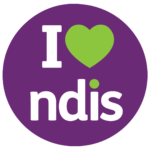Understanding Behavioural Plans: A Personalised Approach
In the realm of disability support, empowering individuals to lead fulfilling lives and fostering their independence is a paramount goal. One valuable tool that aids in achieving these objectives is the development and implementation of behavioural plans. These plans are not just pieces of paper; they are pathways to unlocking the potential of participants and promoting positive change. In this blog, we’ll explore why participants benefit from behavioural plans and how they can be transformative in enhancing the quality of life.
Behavioural plans are individualised roadmaps designed to address and modify specific behaviours, whether they be challenging or goals for self-improvement. These plans are tailored to the unique needs and aspirations of each participant, ensuring that support is both effective and person-centred.
- Clarity and Focus:
Behavioural plans provide participants with clear, structured objectives. They define the target behaviours and set attainable goals. This clarity helps individuals understand what’s expected and provides a clear path to follow.
- Personal Growth and Self-Awareness:
Through the development of behavioural plans, participants can gain insights into their own behaviour patterns. This self-awareness is crucial for personal growth and self-improvement, as it enables individuals to identify areas for change.
- Positive Reinforcement:
Behavioural plans often incorporate positive reinforcement strategies. This means that participants receive recognition and rewards for achieving their goals, which can be a powerful motivator. Celebrating successes fosters self-esteem and a sense of accomplishment.
- Consistency and Predictability:
Consistency is key when it comes to modifying behaviour. Behavioural plans provide a consistent approach to addressing specific behaviours, which can help reduce uncertainty and anxiety in participants.
- Empowerment and Ownership:
Participants actively engage in the development and execution of their behavioural plans, giving them a sense of ownership over their own progress. This empowerment can lead to increased self-confidence.
- Improved Quality of Life:
Ultimately, the primary benefit of behavioural plans is their capacity to enhance the quality of life for participants. By addressing challenging behaviours and promoting positive change, these plans can lead to greater independence, stronger relationships, and a more fulfilling life.
A Personalized Journey to Success
Behavioural plans are instrumental in promoting personal growth, self-awareness, and empowerment among participants. These plans go beyond addressing behavioural challenges; they provide a roadmap to a brighter, more independent future. By emphasising clarity, consistency, and positive reinforcement, behavioural plans not only support individuals in their journey but also celebrate their progress along the way. At Recruit, Connect, and Care, we believe in the transformative power of behavioural plans to unlock the potential within each participant, and we are dedicated to walking this personalised journey to success together.







